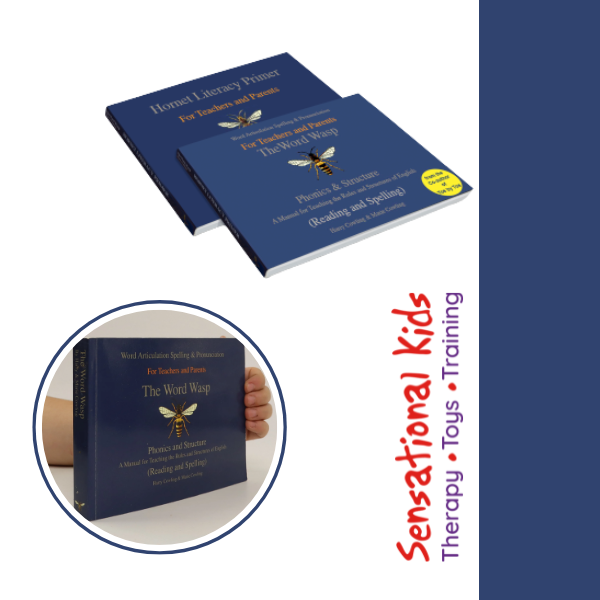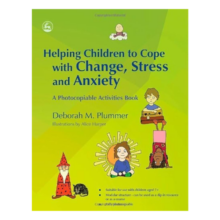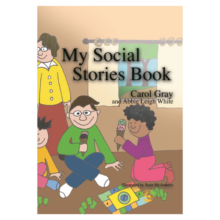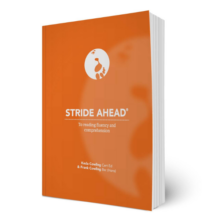Description
- Word Wasp: A Manual for Teaching the Rules and Structures of English
The Word Wasp, like the Hornet Literacy Primer, is a manual for teaching literacy skills: both reading and spelling. It too can be used by anyone. In short: you do not need to be a teacher or a professional: A coach needs a moderate ability to read the English language.
Anyone needing to learn English, for whatever reason, can use this text to begin, accelerate, or catch-up their literacy skills.
The structured programme is based on phonics and those rules which govern English. Our texts rely on teaching the 43 sounds/rules that form the structure of our language. The Wasp does not rely on memory! We start with the basic letter sounds and work our way through the language. Coaches are guided throughout the Wasp with easy to follow instructions and the simple marking system directs coaches to problem areas.
The Word Wasp like the Hornet has been designed in order that students will not be confronted by anything beyond their grasp and it has also been designed to reflect its efficiency. Patronizing graphics and language will not be found amongst the exercises. No one will find the text embarrassing, which makes them suitable for both young and older students.
The Word Wasp is a comprehensive programme beginning with basic letter sounds before progressing to more complex diphthongs and digraphs. It can be used with students from the age of seven upwards. The programme ends with polysyllabic words of Latin and Greek origin.
Reading and Spelling Problems solved through Rules and Structure
Both Wasp and Hornet programmes start from the premise that no one learns to read or spell by remembering either the shape or letter order of a word. Our language and every other language is a code. Fail to teach the code! Fail to teach the student!
Both the Word Wasp and the Hornet have been carefully designed so students are reintroduced to rules on a regular basis in the reading and spelling exercises. When rules reappear coaches are invited to reintroduce them by demonstrating them on scrap paper. Students can then be directed to the cause of a spelling mistake and the rules will be re-enforced once more. We are teaching the code of the English language! We are not teaching our students to memorise words. Giving students word lists is the equivalent of giving a word a number. How many telephone numbers can you remember?
Simplicity is the key to both programmes.
A coach does not need I.T. skills: complimentary literature, books, audio tapes or video tapes.
Speech improvements:
Students with speech problems benefit greatly because we teach sounds and the phonic composition of words. Students, particularly dyslexic students and those with auditory discrimination problems, who have not been taught the phonic structure of words, have to rely on the vagaries of received sounds in the formation of words which causes inaccuracies, frustration and embarrassment.
WASP stands for Word Articulation Spelling and Pronunciation and these are the principles which guided our research, methodology and strategies.
298 pages
Authors: Harry Cowling & Marie Cowling; Age Suitability: Additional Needs – 7 to adult
- The Hornet Literacy Primer is a manual for teaching literacy skills: reading and spelling.
This one-to-one teaching manual by Harry and Marie Cowling can be used on the kitchen table or the school desk. It deals with the fundamental structures and conventions that operate within our language. It promotes what a word means alongside how to read and spell it.
Its main function is to develop a linguistic frame for all students from age five to seventy five, helping them to understand the orders and structures that rule the English language. It can therefore also be useful for learners of English as a second language.
It can be used by anyone, you do not need to be a teacher or a professional: A coach needs a moderate ability to read the English language.
Other than the manual, all you need is a pencil, an exercise book and scrap paper.
Some of our students, particularly between the ages of 5 and 7, require both a slower start and a lower threshold.
The Hornet was specifically designed for these students.
Adults with severe reading and spelling difficulties are also able to use the Hornet.
The Hornet’s early exercises are concerned with learning the basic phonic sounds of the alphabet code.
These sounds are at the very foundation of our language.
These programmes are based on phonics and rules, central to which is the development of the ability to process sounds; particularly vowel sounds.
Students of the Hornet will, from the beginning, develop the ability to identify vowel sounds from speech and express them graphically by writing them down.





